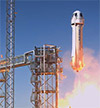Regional Report: Auto, Aviation, Energy Drive Growth in the South
Growth in automotive and aviation-related manufacturing, as well as the energy sector, is responsible for much of the South’s economic success.
Directory 2015
Auto/Advanced Manufacturing
Alabama has grown into quite the automotive state, thanks to its Mercedes-Benz, Honda, and Hyundai plants and the wealth of suppliers that support those assembly operations. Before Mercedes opened its facility in 1997, no cars were made in Alabama. Two years after Mercedes opened for business, Honda announced plans for its $2 billion Alabama facility, and two years later Hyundai said it would join the party with a nearly $2 billion plant of its own.
Today, the state ranks fifth in automotive and light truck manufacturing, and in the bustling automotive South, Alabama makes a quarter of all of the region’s passenger vehicles. The sector enjoys continued growth — for example, this fall Mercedes announced it would increase its Alabama output to 300,000 vehicles.
Not surprisingly, transportation equipment is by far the state’s largest export. And among the growth that landed the state a Silver Shovel award were numerous auto-related projects, from the logistics hub Mercedes announced to a variety of supplier expansions covering such components as seats and fuel tanks.
Advanced manufacturing continues to also move forward in Alabama. The Alabama Robotics Technology Park is working on an expansion — an Integration, Entrepreneurial and Paint/Dispense Training Center, for which ground was broken on Halloween. Also in October, GKN Aerospace broke ground on an addition to its Tallassee facility to create an engineering design center. Overall, the GKN Aerospace ACS facility about 35 miles from Montgomery employs more than 1,000 people. Meanwhile in Decatur, United Launch Alliance assembles Atlas and Delta launch vehicles designed to carry satellites and space probes into orbit and beyond. Some 1,000 employees are on the payroll there.
Aviation Takes Off
Aviation is big business in Arkansas, and has been for decades, thanks to the presence of Dassault Falcon Jet’s Little Rock completion facility, which is the French company’s largest operation. The region’s top manufacturing employer, Dassault Falcon Jet broke ground in 2014 on a $60 million expansion and upgrade.
The facility is a prime reason why Beaudet Aviation picked Little Rock this past fall for a new facility. Beaudet, which focuses on aircraft cabin interiors, will supply Dassault Falcon Jet with completion work for its Falcon models, according to the Little Rock Regional Chamber of Commerce. The announcement means 75 jobs at the outset, and the company’s ongoing expansion plans include eventually building its own hangar big enough to accommodate wide-body jets.
“Aviation is Arkansas’s leading export,” Governor Mike Beebe said as Beaudet made its announcement. “Beaudet Aviation now increases that sector’s strong momentum with its arrival in Little Rock.” The aviation/aerospace sector, with more than 20 companies in the region that employ 9,000 people, represents more than 10 percent of the state’s exports.
One of the biggest developments of 2014 in Arkansas was the September groundbreaking in Osceola for a $1.3 billion steel mill and recycling facility for Big River Steel LLC. It is, in fact, the biggest-ever single private investment in the state. It’ll take about a year and a half to complete, and when it opens, it’ll provide work for 500 people who’ll earn an average of $75,000 a year. Some 14 percent of the Arkansas workforce is involved in manufacturing, making it one of the nation’s most manufacturing-intensive states. The advanced manufacturing and innovation economies are diverse across the state. For example, Caterpillar opened a road grader plant there four years ago; HP has a large workforce involved in customer service and technical support; and Denmark-based LM Wind Power manufactures wind turbine blades in Little Rock. Agriculture and food processing are big in Arkansas, too.
Another Auto Powerhouse
Kentucky is heavily invested in manufacturing, as well, and like so many of the states around it, automotive manufacturing is one of the big reasons. Toyota is a well-established employer, with its growing Georgetown assembly plant. Later in 2015 the company plans to begin assembling its Lexus ES 350 there, representing a $531 million expansion worth some 750 new jobs. The presence of Toyota in Georgetown, Ford in Louisville, plus significant automotive assembly in neighboring Tennessee and Indiana and other nearby states has brought a boom in automotive suppliers, too. Examples include Aleris Corp., which just launched a $350 million expansion at its aluminum rolling mill in Lewisport.
Many of Kentucky’s top job-creating investments last year were in manufacturing, with many related to vehicles in one way or another. Even so, the state’s 4,000 manufacturers that together employ nearly a quarter million people manufacture lots of other things — everything from Tempur-Pedic mattresses to Pop-Tarts. The second-biggest manufacturing employer is General Electric in Louisville, and food-related manufacturing also has a significant impact.
Outside of manufacturing, there’s plenty of good news as well. Examples include Computershare Inc.’s plans to open a facility in Jefferson County, Kentucky. The company specializes in financial services and investor communications, and plans to create up to 250 new jobs. And an eBay Enterprise fulfillment center in Walton is expanding and adding 300 jobs.
Energy-Related Investments
In 2013, the U.S. Chamber of Commerce named Louisiana the top export state in the nation, with the second-biggest prospects for export growth. The state has been among the leaders in pushing the nation’s jobless rate downward, thanks in large part to growth in the energy sector.
Consider the October announcement by Sasol Ltd. to develop an $8.1 billion petrochemical complex near its existing Westlake, Louisiana, facilities. The new investment is to include an ethane cracker and six chemical manufacturing plants, and promises some 500 new direct jobs and about five times as many indirect jobs. And then there’s the plan from NFR BioEnergy, investing $312 million to install biorefineries at more than 10 sugar-refining hubs in South Louisiana. The 450-job plan is to convert sugarcane waste into hardened energy pellets to fuel power plants.
But energy and petrochemicals aren’t everything in Louisiana. Among other recent announcements is a 425-job headline involving Renaissance RX, a biomedical company making an $8 million capital investment in a new headquarters in New Orleans. And Perficient plans a software development center in Lafayette, with a promise of 245 new jobs.
Louisiana is making noteworthy strides as a business location, as noted by its rise in the Forbes rankings of the “Best States for Business and Careers.” Back in 2008, it was almost at the bottom of the list, in slot number 49, but this year it’s all the way up to 29, the second-best improvement. The magazine credits an improved business climate, a better regulatory environment, and improved business costs.
Auto Suppliers Taking Note
Mississippi is nearly as manufacturing-intensive as Arkansas and Kentucky, with some 12 percent of the workforce directly engaged in manufacturing, according to the Mississippi Manufacturers Association. And as part of the South’s automotive belt, it’s no surprise to learn that a lot of that activity involves motor vehicle manufacturing. The opening of a Nissan plant a decade or so ago assured that status, and Toyota arrived on the scene in the years since.
With big assembly plants in the state and not far across state lines, automotive suppliers have been driving into the state as well. One of the biggest announcements came in 2013, when Yokohama Tire Corp. launched a $300 million investment promising 500 jobs at the outset and as many as 2,000 further down the road. Grammer Inc., a German-owned supplier of automotive interiors and seating systems for commercial vehicles, picked Tupelo for a 650-job facility. And Feuer Powertrain chose a Mississippi site for its first U.S. manufacturing operations, with 300 new jobs.
But automotive is just part of the story. Among the non-automotive headlines in recent months: Posturecraft Mattress Co.’s move to Mississippi; a 250-job facility opened last year by Aurora Flight Sciences; a $6.7 million manufacturing and distribution facility from Aluma-Form, a power distribution products maker; and a plan by Green Circle Bio Energy to make wood pellets to fuel electric generating facilities. All in all, the last three years have seen nearly 16,000 new jobs announced and promises of more than $2 billion in capital investment.
Drawing FDI
As with the other states in this region, the economy of Tennessee benefits tremendously from the booming automotive industry, which has accounted for about an eighth of all of the new jobs created since the Great Recession and a third or more of the manufacturing sector’s growth in output.
Growth is likely to keep on rolling, too. For example, Volkswagen is gearing up for a $900 million expansion of its Chattanooga plant; Nissan has been adding jobs; General Motors is pumping $185 million into its Spring Hill plant to make small gas engines; and Hankook Tire Co. has begun construction of its first U.S. manufacturing facility, which is to open in 2016 and employ as many as 1,800 people.
Another announcement involving a huge number of jobs came from Under Armour, which is planning a million-square-foot, $100 million distribution and warehousing facility that will employ up to 1,500 people as it grows over the next five years.
The state has won the hearts of companies around the world, according to the IBM Institute for Business Value, which recently declared Tennessee was the top state in the nation last year for foreign direct investment job commitments. There were more than 50 such commitments, promising more than 9,200 jobs.
Project Announcements
Taiwan-Based Foxconn Technology Locates First U.S. Manufacturing Plant In Louisville, Kentucky
12/12/2025
Australia-Based Aquatic Leisure Technologies Group Plans Opp, Alabama, Manufacturing Operations
12/11/2025
Teradyne Plans Wixom, Michigan, Robotics Operations
12/11/2025
Robinson Plans Altoona, Iowa, Manufacturing Operations
12/11/2025
BioTouch Expands Columbus, Georgia, Operations
12/11/2025
Natrion Plans Erie County, New York, Battery Components Operations
12/11/2025
Most Read
-
The Workforce Bottleneck in America’s Manufacturing Revival
Q4 2025
-
Rethinking Local Governments Through Consolidation and Choice
Q3 2025
-
Lead with Facts, Land the Deal
Q3 2025
-
Investors Seek Shelter in Food-Focused Real Estate
Q3 2025
-
America’s Aerospace Reboot
Q3 2025
-
The Permit Puzzle and the Path to Groundbreaking
Q3 2025
-
Supply Chain Whiplash Reshapes CRE
Q3 2025



